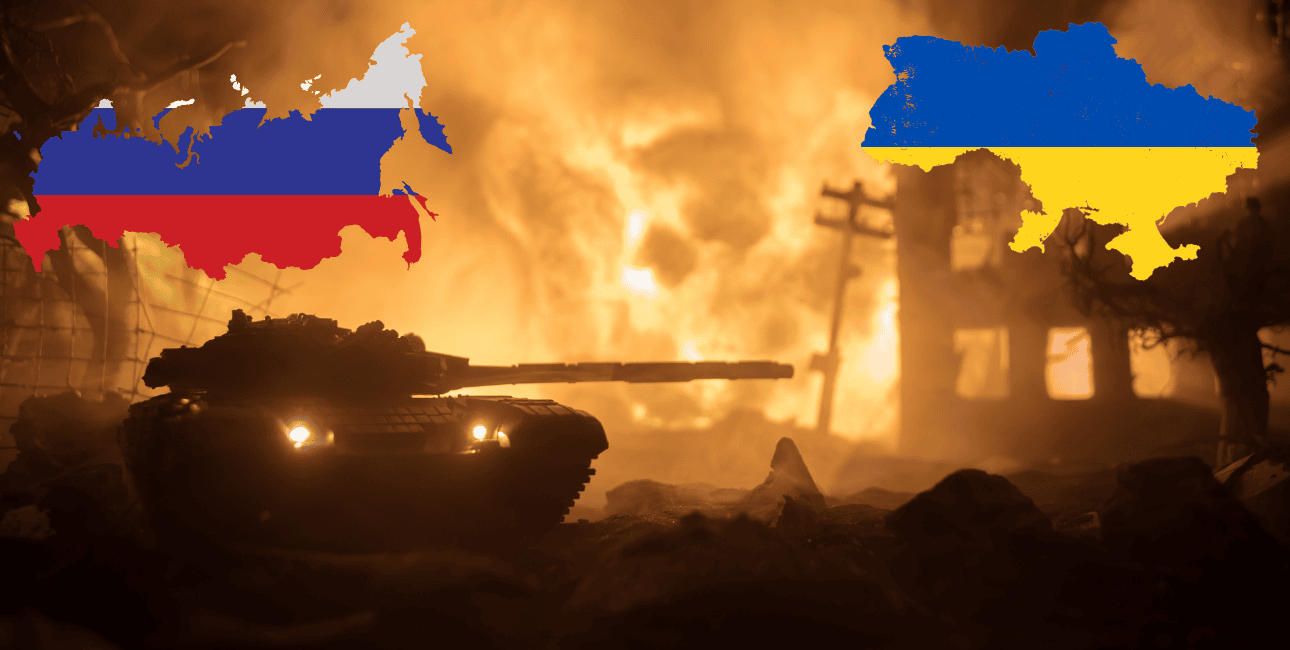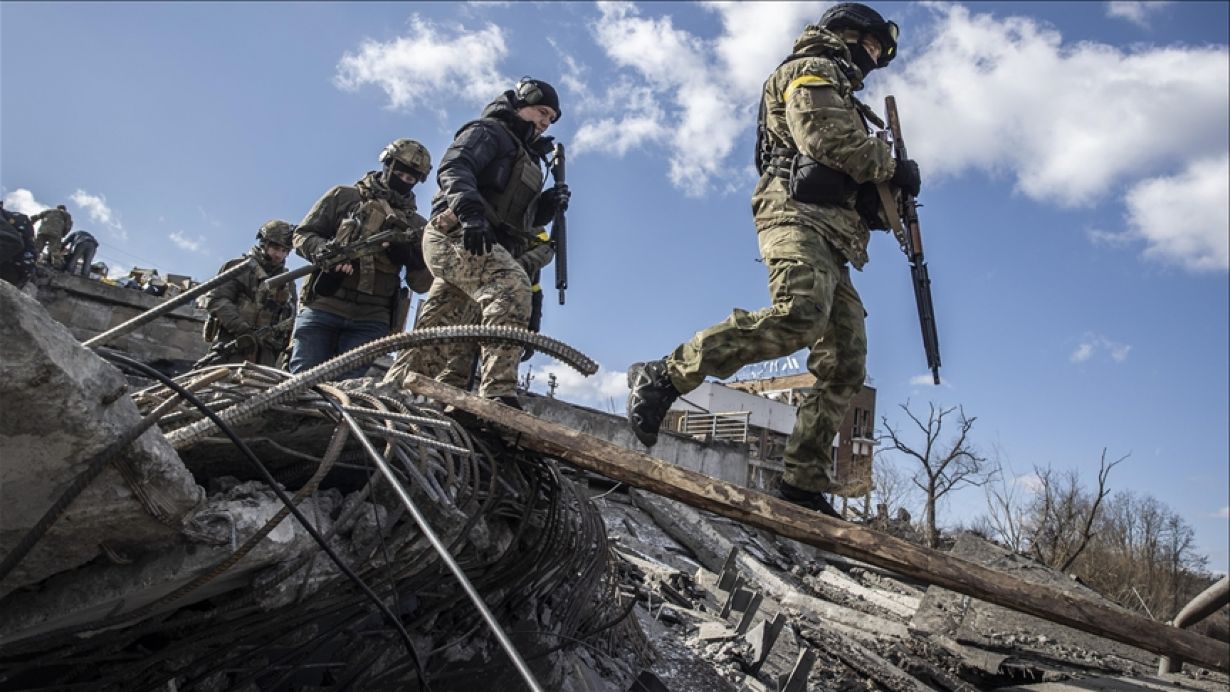As the third anniversary of Russia’s February 2022 invasion of Ukraine approaches, serious negotiations over the protracted war finally seem to be taking shape. But could the war have been halted earlier? Why did the 2022 Istanbul Communiqué fail? And beyond Ukraine, who has already felt—or might still feel—the impact of the collapsed peace talks?
In the early hours of February 24, 2022, Russia launched airstrikes across Ukraine as its forces advanced from the north, east, and south. In the following days, Russian troops attempted to encircle Kyiv.
Amid the unfolding war, multiple rounds of peace talks were held. The first meeting took place on February 28, 2022, in Belarus, followed by further talks in early March on the Belarus-Ukraine border and in Antalya, Turkey.
By late March, negotiations culminated in the Istanbul Communiqué, outlining a potential settlement. It seemed Ukraine and Russia were progressing toward a treaty, but by May, the talks collapsed. The war continued, claiming thousands of lives.
Some now argue Ukraine should have signed the deal. But was that ever a viable option?
The Istanbul Communiqué
The Istanbul negotiations remain a subject of intense debate—how close were Russia and Ukraine to a deal?
The negotiations in Istanbul raised hopes for a ceasefire, but fundamental disagreements remained.
Moscow insisted it was ‘willing to talk,’ but its terms amounted to Ukraine’s near-total surrender: disarmament, permanent neutrality, official status for the Russian language, recognition of Crimea as Russian, independence for Donetsk and Luhansk, and a Kremlin-approved regime change.
Some major sticking points derailed the talks:
Military Size: A key sticking point was the size of Ukraine’s post-war military—Kyiv sought 250,000 troops, while Moscow insisted on just 85,000. Disagreements also arose over the types of weapons Ukraine could retain.
Crimea’s Status: Crimea, under Russian control, remained a key hurdle. The proposed solution involved a 15-year negotiation period, during which Russia would retain control of the peninsula on a lease.

Leadership Change: Moscow reportedly demanded Zelenskyy’s resignation, proposing pro-Russian politician Viktor Medvedchuk as his successor.
Despite this, Ukraine reportedly agreed to key concessions, including neutrality and dropping its NATO ambitions. In return, Russia seemed open to Ukraine joining the EU—a stance it still maintains today.
But, the talks collapsed by May, and the war raged on. Could this deal have prevented the devastating losses that followed? And who truly bears responsibility for its failure?
A Lost Path To Peace?
The Istanbul Communiqué outlined Ukraine’s stance and response to Russia’s ultimatum, offering significant concessions. Negotiators stressed that both sides had pre-agreed on its terms, making it a potential foundation for a peace settlement.
However, a final agreement remained out of reach for several reasons. Kyiv’s Western partners were reluctant to be drawn into a negotiation with Russia, particularly one that would have created new commitments for them to ensure Ukraine’s security.
With Russia’s failed attempt to encircle Kyiv, Zelensky grew confident that, with enough Western support, Ukraine could achieve victory on the battlefield.
Ukraine’s successes in Kharkiv and Kherson in 2022 reinforced this belief, leading Western leaders to abandon negotiations in favor of a military win. In June 2022, President Biden wrote in The New York Times that the US was arming Ukraine to “fight on the battlefield and be in the strongest possible position at the negotiating table.”
Ukrainian public sentiment hardened after the discovery of Russian atrocities in Irpin and Bucha, which had been retaken during Ukraine’s spring counteroffensive.
After Ukraine’s successful eastern counteroffensive, Russia called for renewed peace talks. However, many analysts suggested Putin was merely stalling to regroup, train, and prepare for another offensive.
In short, signing the Istanbul Communiqué might have halted the war swiftly, but trust in Moscow remained a major obstacle.
Was A Peace Deal Ever Possible?
The truth is, Russia and Ukraine never reached an agreement in Istanbul—Putin himself confirmed this on April 12, 2022, during a press briefing with Belarusian President Aleksandr Lukashenko.
In April 2024, Zelenskyy dismissed the idea that the 2022 talks in Belarus and Turkey could have stopped the war. “Negotiations happen when both sides seek an agreement… When one side issues an ultimatum, that’s not negotiation,” he said.

Daniel Szeligowski, head of the Eastern Europe Programme at the Polish Institute of International Affairs (PISM), echoed this view: “The popular wisdom says that both sides were close to an agreement, but this is simply false.”
“How Russia sought to subjugate Ukraine, the West rightly refused to play the ball, and Putin became personally responsible for the failure of the Ukrainian-Russian talks,” Daniel stated in his tweet series.
Even if Ukraine had agreed, the deal was never a viable option. A neutral Ukraine with a weakened military would have been defenseless against future Russian aggression.
Signing the Istanbul Communiqué would have effectively turned Ukraine into a satellite state of Russia—led by a pro-Kremlin government and cut off from Western alliances.
The New Reality: A War With No Easy Exit
Today, the geopolitical landscape has shifted dramatically. US President Donald Trump has overturned three years of Joe Biden’s efforts to isolate Russia over its invasion of Ukraine. In a 90-minute phone call with Vladimir Putin, Trump signaled a break from past policy—sidestepping Ukraine and Europe in negotiations.
He even went as far as blaming Ukraine for the war, calling President Zelenskyy a “dictator.” For Kyiv, this feels nothing less than a betrayal by its most powerful ally.
In response, Zelenskyy pushed back against the Trump administration’s demands for billions in Ukrainian natural resources and peace talks that exclude Ukraine while announcing plans for a major European leaders’ summit.
Now, Ukraine faces an impossible choice: surrender vast territory, abandon its national identity, or permanently lose control over its security.
However, for Zelensky and his nationalist coalition, the stakes are even higher. How do they justify years of war, thousands of lives lost, and millions displaced—only to accept terms they once rejected? For them, conceding now wouldn’t just be a strategic defeat but political suicide.
- Shubhangi Palve is a defense and aerospace journalist. Before joining the EurAsian Times, she worked for ET Prime. She has over 15 years of extensive experience in the media industry, spanning print, electronic, and online domains.
- Contact the author at shubhapalve (at) gmail.com




